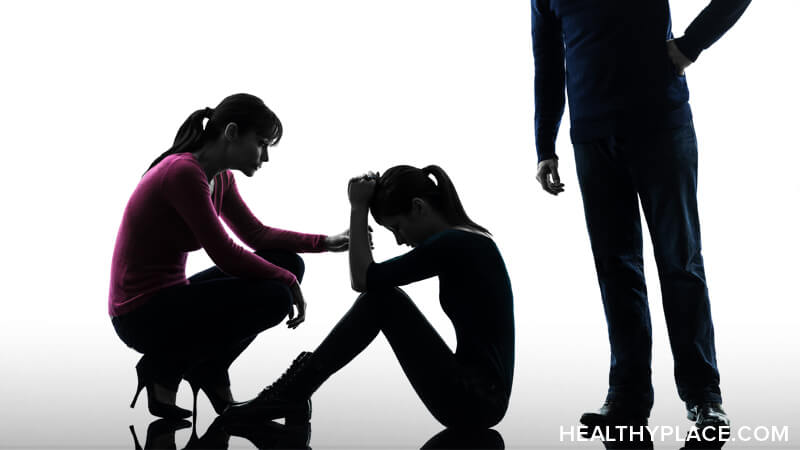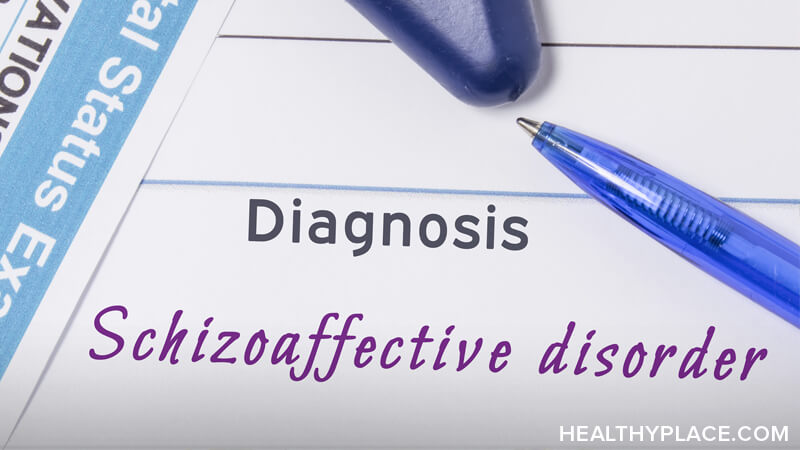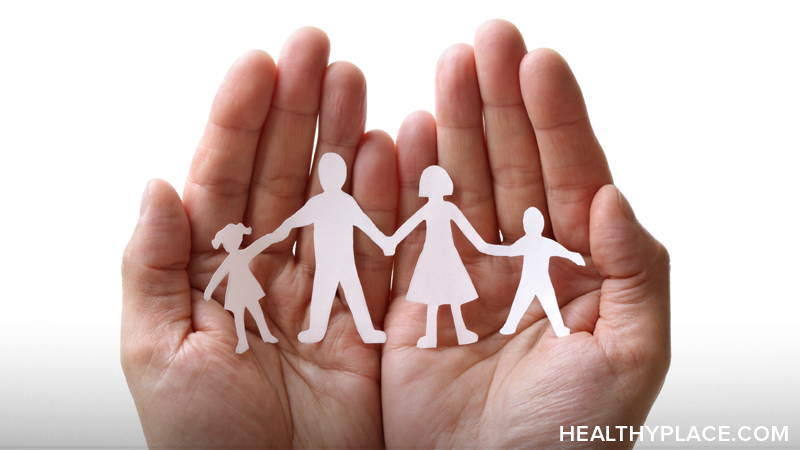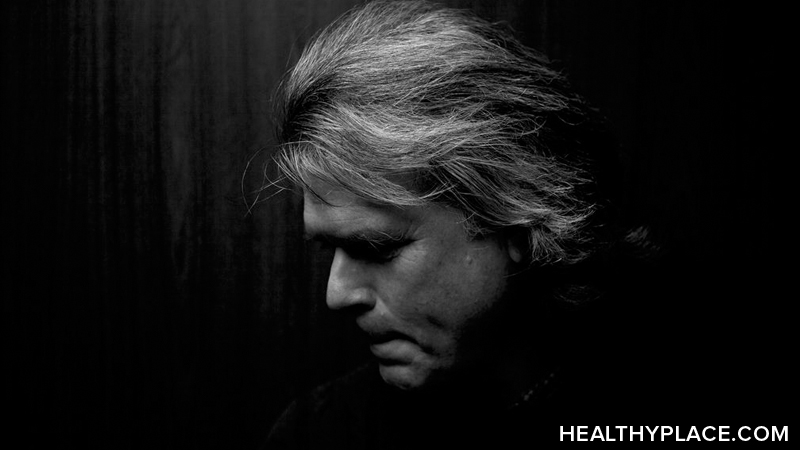Shopping Addiction Quiz

A shopping addiction quiz may help you determine if you're a shopaholic. Approximately 6% of adults can be considered shopaholics, according to a 2006 Stanford University study. People who frequently engage in buying things, regardless of need and/or ability to pay, are commonly referred to as shopaholics. And it's not only a problem for women, but the same study reports that half of the 17 million Americans who are compulsive shoppers are men.
Take the Shopping Addiction Quiz
The shopping addiction quiz includes six statements. There is a 7-point scale from strongly disagree (0 points) to strongly agree (7 points):
- My closet has unopened shopping bags in it.
- Others might consider me a "shopaholic."
- Much of my life centers around buying things.
- I buy things I don’t need.
- I buy things I did not plan to buy.
- I consider myself an impulse purchaser.
Scoring the Shopping Addiction Quiz
If you score 25 or higher on the shopping addiction quiz, you would be considered a compulsive shopper (shopaholic). So if you answered "yes" to most of these questions, it's likely you have a compulsive shopping problem.
Kent Monroe, a marketing professor at the University of Illinois at Urbana-Champaign who helped design the shopping addiction quiz says "an individual could respond to the six items to check whether they may have these tendencies. However, as with any attempt at self-diagnosing, it should be carefully done and honestly responded to."
Monroe says earlier tests for identifying compulsive shoppers (shopping addicts) were lacking because they focus mostly on the consequences of shopping, such as financial difficulties and family strain over money matters. For compulsive shoppers with higher incomes, money matters could be non-existent.
Second Shopping Addiction Quiz
There's another scale that can be useful in assessing compulsive shopping or spending. This shopping addiction quiz is modeled after the Debtors Anonymous 15 question scale.
Shulman Center 20 Question Assessment
- Have you ever lost time from work or school due to shopping/spending?
- Has shopping/spending ever created problems in your relationships?
- Has shopping/spending ever affected your reputation or people’s opinion of you?
- Have you ever felt guilt, shame, or remorse after shopping/spending?
- Do you have trouble with debt or paying your bills?
- Did shopping/spending ever cause a decrease in your ambition or efficiency?
- Did you ever experience a “high” or “rush” of excitement when you shop or spend?
- Have you ever shopped/spent to escape worries?
- Has shopping/spending caused you to have difficulty eating or sleeping?
- Do arguments, disappointments or frustrations create an urge to shop or spend?
- Have you noticed you began shopping or spending more frequently over time?
- Have you ever considered self-destruction or suicide as a result of your shopping/spending?
- Upon stopping over-shopping or overspending did you continue to be tempted/preoccupied with it?
- Have you kept your shopping/spending a secret from most of those you are close to?
- Have you told yourself “this is my last time” and still over-shopped or overspent?
- Have you continued to shop or spend despite having been had legal issues such as bankruptcy or divorce?
- Do you often feel a need for control or tend toward perfectionism?
- Do you have issues with clutter or hoarding the items you’ve purchased?
- Have you purchased items that you’ve never if rarely even used?
- Do you have trouble speaking up for yourself, asking for help, or saying “no”?
Most compulsive shoppers or spenders will answer yes to at least seven (7) of these shopping addiction quiz questions.
You can print out this shopping addiction quiz and share the results with your doctor or other mental health professional.
Find more info about Shopping Addiction Therapy.
Source
- Journal of Consumer Research, Dec. 2008, http://www.jstor.org/pss/10.1086/591108
APA Reference
Tracy, N.
(2021, December 16). Shopping Addiction Quiz, HealthyPlace. Retrieved
on 2025, May 22 from https://www.healthyplace.com/addictions/shopping-addiction/shopping-addiction-quiz
The Impact of Drug and Alcohol Abuse on Families

Learn how alcoholics and drug addicts impact other family members and the role family therapy plays in helping the substance abuser as well as the spouse and children.
Substance Abuse Impacts Families
In its guide "Substance Abuse Treatment and Family Therapy," The Substance Abuse and Mental Health Services Administration identifies various family structures and how substance abuse may impact these families.
- A client who lives alone or with a partner - In this situation both partners need help. If one is chemically dependent and the other is not, issues of codependence arise.
- Clients who live with a spouse or partner and minor children - Most available data indicate that a parent's drinking problem often has a detrimental effect on children. The spouse of the person abusing substances is likely to protect the children and assume the parenting duties of the parent abusing substances. The effect on children is worse if both parents abuse alcohol or abuse drugs.
- A client who is part of a blended family - Stepfamilies present special challenges and substance abuse can become an impediment to a stepfamily's integration and stability.
- An older client with grown children - Additional family resources may be needed to treat the older adult's substance use disorder. There may be issues of elder maltreatment that must be reported to local authorities.
- An adolescent substance abuser living with his or her family of origin - Siblings in the family may find their needs and concerns ignored while their parents react to the continuous crises involving the teenager who abuses alcohol or drugs. If there is a parent who also abuses substances, this can set in motion a combination of physical and emotional problems that can be very dangerous.
Family Therapy Can Help
The guide explains that family therapy in substance or drug abuse treatment can help by using the family's strengths and resources to find ways for the person who abuses alcohol or drugs to live without substances of abuse and to ameliorate the impact of chemical dependency on both the patient and the family. Family therapy, the guide says, can help families become aware of their own needs and aid in the goal of keeping substance abuse from moving from one generation to another.
But, the guide warns substance abuse counselors that they must always be aware that family-counseling techniques should not be used where a batterer is endangering a client or a child. The first priority is safeguarding all parties.
The guide warns that family therapy for women with substance use disorders is appropriate except for cases of ongoing partner abuse. Further, women who have lost custody of their children may be strongly motivated to overcome their substance abuse since often they are working to get their children back.
The guide also notes that often family therapists do not screen for substance abuse because therapists are not familiar with the questions to ask or the cues provided by their clients. It also emphasizes that substance abuse counselors should not practice family therapy without proper training and licensing, but they should know enough to determine when a referral is indicated.
Find more comprehensive information about Drug Abuse and Addiction and Alcohol Abuse and Addiction.
Source: SAMSHA News Release (no longer online)
APA Reference
Gluck, S.
(2021, December 16). The Impact of Drug and Alcohol Abuse on Families, HealthyPlace. Retrieved
on 2025, May 22 from https://www.healthyplace.com/addictions/family-impact/impact-drug-alcohol-abuse-on-families
Articles on Schizoaffective Disorder

- What is Schizoaffective Disorder?
- What are the Types of Schizoaffective Disorder?
- What Causes Schizoaffective Disorder?
- What are the Symptoms of Schizoaffective Disorder?
- What is the Treatment for Schizoaffective Disorder?
- Schizoaffective Disorder Medications: Types, Side-Effects
- Schizoaffective Disorder Prognosis: Will I Ever Get Better?
- Living with Schizoaffective Disorder
APA Reference
Tracy, N.
(2021, December 16). Articles on Schizoaffective Disorder, HealthyPlace. Retrieved
on 2025, May 22 from https://www.healthyplace.com/thought-disorders/schizoaffective-disorder-information/articles-on-schizoaffective-disorder
Schizophrenia and Family: Coping with Schizophrenia

Schizophrenia and family issues go hand-in-hand. Both children and young adults can develop the disorder (see Schizophrenia in Children: Symptoms, Causes, Treatments). People with schizophrenia experience a profoundly distorted reality, commonly accompanied by hallucinations, paranoid delusions, language disturbances, fragmented thought patterns, and several other disturbing symptoms.
Frequently, family members who care for their afflicted loved one experience a myriad of issues: mental stress, anxiety, self-doubt, exhaustion, frustration, and loss of social connections. Others blame the mentally ill person – developing resentment toward them, accusing them of selfishness and even sabotaging treatment strategies put in place by physicians.
Who Is Affected By Schizophrenia?
You might ask yourself the question: who is affected by schizophrenia? The answer: everyone in the immediate family of the person with schizophrenia as well as extended family, friends, professional acquaintances – virtually anyone who comes in contact with the family unit on a regular basis.
The person suffering from schizophrenia can no longer live as independently as he or she did prior to onset (see Living with Schizophrenia). Family members, charged with caring for the person, must adjust their personal and professional schedules while becoming educated about the disorder and learning to cope with its effects on family dynamics.
Other relatives living in the same home with the mentally ill person, such as elderly parents or younger children, are thrust into unexpected levels of independence and responsibility. These rapidly changing roles and lifestyles can thrust a family into turmoil they don’t know how to overcome.
Coping With Schizophrenia – Keys to Recovery
The steps required in coping with schizophrenia also provide the keys to recovery for family members and the schizophrenic alike. Each family will develop their own style and toolbox for coping with the ravages of this debilitating illness, but the basics remain the same for all:
- Everyone involved must find the strength to accept the reality of this illness and the challenges it brings. Realize and believe that no one is to blame – not parents, siblings, outsiders, or major events in the past. Until you complete this step, you cannot offer help to your mentally ill loved one or your other family members.
- Educate yourself, other family members, and the patient about the disorder. Learn as much as possible about the physiological and biochemical imbalances that accompany schizophrenia as well as how the afflicted person experiences the symptoms. Know about available schizophrenia treatment options, adjunct therapies, and community support groups that offer schizophrenia help.
- Enforce medication compliance. People with schizophrenia cannot simply “snap out of it” or “pull themselves up by their bootstraps”. Control of paranoid delusions, distorted thought patterns, aural and visual disturbances, insomnia, and other symptoms require potent prescription medication. Encourage your loved one to embrace the help the medication offers and work to ensure that he or she takes the drugs as directed and on schedule.
- Seek outside support. Schizophrenia support groups for both patients and families exist all over the United States. Ask the doctor or therapist to recommend several of these resources for your family. Plan to attend a support group in your area where you and your loved one can interact with other people – face to face. It may also help to participate in some moderated, online schizophrenia support forums, but use these as an accompaniment to your regular group meetings.
- Develop a trusting, honest relationship with mental health professionals involved in the recovery of the schizophrenic patient. Recovering and relapse prevention depends on the strength and integrity of these relationships. If you find that you simply cannot form an appropriate bond with the doctor and therapist, seek others that suit your personality and needs more effectively.
Working on these basic steps required for coping with schizophrenia from the very beginning will lay the foundation necessary to provide a more stable environment for your family. You’ll need to mindfully observe what strategies and schedules work best for the person with schizophrenia and other family members.
Keep a schizophrenia journal of these observations and adjust your strategy and lifestyle accordingly. The journal can also serve as a cathartic tool for relieving internal struggles and recording victories. Your family can learn to cope with the challenges that come with schizophrenia in a healthy way that actually strengthens familial bonds, rather than chipping away at them. Believe that, work toward that end, and this disease will lose its power to destroy.
APA Reference
Gluck, S.
(2021, December 16). Schizophrenia and Family: Coping with Schizophrenia, HealthyPlace. Retrieved
on 2025, May 22 from https://www.healthyplace.com/thought-disorders/schizophrenia-support/schizophrenia-and-family-coping-with-schizophrenia
Schizophrenia Help: For Family Members and Schizophrenia Patients

Schizophrenia help, outside of regular visits to the doctor, takes a lead role in relieving the ravages of this mental disease – for both patient and family member caretakers. Patients and loved ones alike should take the reins and get informed about the available schizophrenia help resources and self-help options for the illness.
Before Providing Schizophrenia Help to Another - Help Yourself First
Accepting schizophrenia and all of the implications it brings marks the first hurdle you must cross before you can provide meaningful schizophrenia help for your loved one. You may feel ashamed or worried about what outsiders will think, due to the stigma associated with schizophrenia. Even so, do not hide the patient’s illness from others. This only degrades your emotional well being and reinforces the stubborn negative attitudes Americans hold about schizophrenia and other mental disorders.
As you talk openly about the disease and how you plan to provide your loved one with schizophrenia help, these uncomfortable feelings will diminish. Shame will turn into a strength that you can use to bring greater awareness to the torment of schizophrenia.
Build a strong foundation that allows you to offer meaningful schizophrenia help and support to your ill family member. Do this by educating yourself about the realities of the disorder, phases of psychoses, typical behaviors, available treatments, therapies, and common roadblocks to recovery.
As you learn how to cope with the disease, you’ll become frustrated at times – maybe even resentful of your loved one. It’s important to join a support group for schizophrenia and for family members of the ill person. Here you will connect with others in the same situation. You can discuss issues, fears, behaviors, and solutions – what works and what remedies do not. It helps to know others are going through the same challenges.
As always, mentally ill loved-one or not, pay attention to your health by exercising, eating right, and engaging in favorite hobbies. Your robust health and attention to self will fortify your arsenal of schizophrenia help tools.
How to Provide Schizophrenia Help to Your Loved One
- Empower your ill family member by allowing him to remain as independent as possible. Frequently, caretakers inadvertently take over tasks that the patient can accomplish, robbing him of dignity and confidence.
- When he or she rants about delusions, visions, and conspiracies, remember that you cannot reason these paranoid delusions away any more than you could reason cancer away.
- Strive to nurture the love in your heart for the person trapped within the torment, even if you hate the schizophrenia and its influence on your lives.
- Do not allow shame to enter your thoughts. This type of shame is toxic and unhealthy.
- Learn to discern the difference between unnecessary, neurotic suffering and embrace true suffering. By doing this, you’ll come out on the other side to a sunny outlook with each true passing storm of pain.
- Set boundaries and clear limitations on your giving of self. You may need to adjust these at times, but commit to staying within reasonable guidelines you set forth.
- Forgive yourself and others for the inevitable mistakes and poorly thought-out behaviors.
- Nurture and feed your relationships with other family members and close friends.
Schizophrenia Self Help Tools and Tips for Patients
People suffering from this traumatizing, neurological brain disorder need to first seek schizophrenia self help support from a mental health group. Participating in the meetings with other patients will help fill in the gaps between medical doctor visits and professional therapy sessions. The National Alliance for the Mentally Ill (NAMI) has 1200 local groups throughout the U.S.
- Actively participate in your treatment. Take as much responsibility for your recovery as you can properly handle. This will empower you and strengthen you during the chaotic and confusing psychotic episodes.
- Use times when you feel safe and good about your surroundings to educate yourself about your illness, the available treatments, warning signs that a challenging time is approaching, and adjunct treatments to try along with your traditional treatment strategy.
- Build a trust relationship with your physician and mental health therapist when you don’t have feelings of unease, persecution, and conspiratorial suspicions.
- Take your schizophrenia medications exactly as your doctor instructs and adhere accurately to the dosing schedule.
- Create reminder lists, sticky notes, or digital reminders on a computer about your medication doses so you stay on track, even when you feel uneasy and enter the painful, dark world.
- If you abuse drugs or alcohol, get help to stop immediately. Indulging in alcohol and recreational drugs at even minimal levels will hinder, or possibly thwart, the recovery progress entirely. You want to get better. You want to leave the dark and chaotic world for good. Don’t sabotage your freedom from illness.
While these schizophrenia help tips for both family members and patients won’t always work, they provide a baseline and a do-over point for those times when your efforts and personal grace fly out the window. It is possible to live a joyful life, while coping with schizophrenia. Believe it. Take control of your mental and physical health. Make the journey toward your best destiny.
APA Reference
Gluck, S.
(2021, December 16). Schizophrenia Help: For Family Members and Schizophrenia Patients, HealthyPlace. Retrieved
on 2025, May 22 from https://www.healthyplace.com/thought-disorders/schizophrenia-support/schizophrenia-help-for-family-members-and-schizophrenia-patients
Schizophrenia Support: Schizophrenia Forums, Support Groups

Seeking schizophrenia support in your local community or online is part of taking responsibility and control of your mental health, or that of a loved one. Schizophrenia support can include:
- online schizophrenia forums
- schizophrenia support group meetings
- schizophrenia family support groups
Fellowship Offered by Schizophrenia Forums Ends the Silence
Schizophrenia forums allow for almost real-time, moderated discussion threads for patients, family members, and others charged with caring for the person with schizophrenia. Talking to others with similar experiences can provide powerful healing and offer participants a deep feeling of belonging. Active schizophrenia forums can provide a deep fellowship, unavailable through any other avenue – a connectedness that ends the silent suffering of those touched by the disorder.
Schizophrenia Support Group Therapy
Schizophrenia support group therapy can prove vital to treatment success. Easily accessible, safe schizophrenia support group options represent a critical component of treatment for those suffering from the mental disorder. They also provide an understanding network for the patient’s family members. Coping with the chaos and confusion that the patients project during their tormented episodes of paranoia builds frustration and resentment in caretakers that have little or no support network. Finding schizophrenia family support can mean the difference between grace and the destructive behavior that can find its way out of the pressure cooker of unrelieved stress.
Where to Find Schizophrenia Support
To find schizophrenia support in your community, ask your doctor, psychiatrist or therapist, for a referral. NAMI, The National Alliance for Mental Illness offers schizophrenia support groups in many local areas throughout the U.S. In addition, through their "Family-to-Family" program, family members can receive education about the illness as well as schizophrenia family support. This is a great source of schizophrenia help.
For other community schizophrenia support, check with your county mental health agency, county social services department and your local United Way.
Here are additional schizophrenia support resources:
- Schizophrenics Anonymous – several member groups throughout the U.S. Phone: 810-557-6777
- Schizophrenia National Support Organizations with links to group locators and resources
Online Schizophrenia Forums
Print out or save this helpful list of schizophrenia support resources to your computer hard drive. But don’t just print or save it – take action and step toward healing immediately.
APA Reference
Gluck, S.
(2021, December 16). Schizophrenia Support: Schizophrenia Forums, Support Groups, HealthyPlace. Retrieved
on 2025, May 22 from https://www.healthyplace.com/thought-disorders/schizophrenia-support/schizophrenia-support-schizophrenia-forums-support-groups
Marijuana Treatment: Getting Marijuana Addiction Treatment

Some marijuana users can quit weed without professional help, but many find official marijuana treatment beneficial for long term marijuana recovery. Treatment for marijuana addiction can be found in-person, through books or online. Different types of marijuana addiction treatment work for different people, but the important thing is to acknowledge the need for marijuana addiction help.
Marijuana Treatment: Medical Treatment for Weed Addiction
Inpatient marijuana treatment isn't generally needed during marijuana withdrawal or recovery, but marijuana addicts can still benefit from medical marijuana addiction help. Of particular importance is an initial visit to a medical professional when deciding to quit pot. At this time in marijuana treatment, a doctor should do an initial evaluation looking for any damage done by drug use (read: marijuana side effects) or any other disorders that need to be handled during treatment for marijuana addiction.
Of particular concern in marijuana recovery is mental illness. Mental illness commonly occurs in pot addicts, often because the user is attempting to self-medicate their mental illness, but when the person gets marijuana addiction treatment, the mental illness symptoms become apparent. Moreover, pot addiction treatment removes the one way the person may know to deal with the symptoms of their mental illness. Returning to pot to medicate a mental illness can completely undermine treatment for weed addiction.
Medical treatment for weed addiction does not typically include medication prescriptions unless other disorders are also present. No medication has been shown to be effective in marijuana treatment or marijuana recovery.1
Marijuana Treatment: Treatment for Marijuana Withdrawal
Some doctors disagree on the specific marijuana withdrawal symptoms to be expected. However, marijuana withdrawal has been shown to have some of the same symptoms as tobacco withdrawal, but with considerably milder symptoms. Medical treatment for marijuana withdrawal symptoms is not typically required. Marijuana recovery may include some of the following marijuana withdrawal symptoms:
- Anger, aggression, irritation
- Anxiety, restlessness, nervousness, paranoia
- Decreased appetite, weight loss
- Difficulty sleeping
- Depression
- Physical discomfort
- Headache
- Tremor
- Sweating
While time is often considered the best marijuana treatment for withdrawal, support during the two-week period expected for withdrawal is also helpful. Marijuana treatment programs and marijuana treatment professionals can also be helpful during withdrawal.
Marijuana Treatment: Therapy and Marijuana Recovery
Marijuana withdrawal symptoms may be over in two weeks, but changing drug-related behavior can take time during marijuana treatment. Therapy during marijuana treatment has been shown to decrease relapse and create long-lasting marijuana recovery. Common therapies found in marijuana treatment include:
- Cognitive behavioral therapy (CBT) - designed to challenge, and ultimately change, thoughts and behaviors around marijuana use. Stress tolerance and other skills are also taught.
- Motivational interviewing (MI) - focuses on creating and fostering motivation to not use marijuana during marijuana recovery. Successful drug screenings are rewarded with "points" the addict can trade for a reward.
- Psychotherapy - individual, family or group therapy may be used. Therapy focuses on relationships, interpersonal skills and other psychological issues.
Marijuana Treatment: Marijuana Treatment Programs
Some marijuana treatment programs can be found online or in books. However, drug-specific, in-person marijuana treatment programs are uncommon in North America. Marijuana treatment programs may be available as a part of other drug treatment programs, however. Any drug addiction treatment facility is likely to have applicable services.
Formal marijuana treatment programs offer medical and personal support with therapy, education and often, skills training.
While not formal marijuana treatment programs, many find addiction support groups helpful during marijuana recovery. A common group is Narcotics Anonymous where addicts support each other through drug treatment and recovery.
APA Reference
Tracy, N.
(2021, December 16). Marijuana Treatment: Getting Marijuana Addiction Treatment, HealthyPlace. Retrieved
on 2025, May 22 from https://www.healthyplace.com/addictions/marijuana-addiction/marijuana-treatment-getting-marijuana-addiction-treatment
Marijuana Withdrawal and Managing Marijuana Withdrawal Symptoms

Marijuana withdrawal was once thought not to exist due to its lack of similarity to other known withdrawal syndromes for drugs like heroin and alcohol. However, it's now known that marijuana withdrawal exists although exact marijuana withdrawal symptoms are under debate. Marijuana withdrawal is mentioned in the current Diagnostic and Statistical Manual (DSM) of mental illness as part of marijuana dependence and marijuana abuse. Cannabis withdrawal, which would include marijuana withdrawal, is being considered for its own entry in the next version of the DSM.
Marijuana withdrawal, also known as weed withdrawal or pot withdrawal, is known to include mild psychological and physical pot withdrawal symptoms compared to other drugs.
Marijuana Withdrawal - Weed Withdrawal Symptoms
Pot withdrawal symptoms are more common in heavy, chronic users although pot withdrawal still only occurs to a subset of people. It is commonly thought pot withdrawal symptoms generally appear 1-2 days after cessation of marijuana to 7-14 days after. Weed withdrawal symptoms are at their most severe 3 days into abstinence.
While weed withdrawal symptoms vary from person to person, common weed withdrawal symptoms include:1
- Anger, aggression, irritation
- Anxiety, restlessness, nervousness, paranoia (read: anxiety and marijuana)
- Decreased appetite, weight loss
- Sleep difficulty
- Depression (read: marijuana and depression)
Less common weed withdrawal symptoms include:
- Stomach pain
- Headache
- Physical discomfort
- Tremor
- Sweating
Marijuana Withdrawal - Weed Detox
Managing weed withdrawal symptoms medically is known as weed detox, pot detox or marijuana detox. Weed detox is uncommon in North America as no treatment has proven to be effective in managing weed withdrawal symptoms, in spite of substantial research.
Australia's Cannabis Centre currently offers pot detox and weed withdrawal treatment. Australia's Institute of Health and Welfare report states that 16% - 19% of marijuana treatment was marijuana withdrawal management, or marijuana detox.2
Marijuana Withdrawal - Managing Weed Withdrawal Symptoms
Managing pot withdrawal symptoms is not generally done in a hospital unless there are additional complications. Managing weed withdrawal symptoms involves preparation and support, including the support of addiction services when needed.
Pot withdrawal symptoms can be handled with the aid of addiction specialists like:
- Drug counselors - able to counsel on marijuana treatment and marijuana withdrawal options and make referrals.
- Therapists-able to educate about pot abuse and pot withdrawal as well as focus on changing thoughts, behaviors and motivations around drug use. Therapists also discuss interpersonal, family and other issues.
- Peer groups - support groups consisting of other drug addicts able to support each other through weed withdrawal and weed treatments.
APA Reference
Tracy, N.
(2021, December 16). Marijuana Withdrawal and Managing Marijuana Withdrawal Symptoms, HealthyPlace. Retrieved
on 2025, May 22 from https://www.healthyplace.com/addictions/marijuana-addiction/marijuana-withdrawal-and-managing-marijuana-withdrawal-symptoms
Quitting Weed! How to Stop Smoking Marijuana, Pot, Weed

Many people work at quitting smoking pot (weed, marijuana). In fact, 100,000 people get treatment to help quitting weed each year in the United States. While many people do successfully stop smoking pot, quitting pot is more difficult for some than others. Professional help is sometimes needed to learn how to quit weed for good.
Quitting Weed - Medical Help for Quitting Marijuana
Medical treatment for marijuana is often not necessary to stop smoking weed (pot, marijuana) and inpatient treatment is not generally recommended for marijuana abuse, quitting marijuana or marijuana withdrawal.1 However, a medical evaluation can be a helpful first step towards giving up weed long term. This is because pot use may have caused, or hidden, physical or psychological problems that only come to light after quitting smoking weed. (read: effects of long term marijuana use)
A doctor can look at what a person is experiencing when quitting pot smoking and determine if the symptoms are part of withdrawal, mental illness or some other medical condition. As many users are addicted to more than one drug, a doctor can also evaluate additional substance abuse issues that must be addressed when trying to quit marijuana.
Unfortunately, the one thing doctors can't do is prescribe medication to specifically help with giving up weed. While several drugs have been tested, no drug has been shown effective in helping people to quit pot.
Quitting Weed - Withdrawal and Quitting Pot
Studies have found that only some people quitting weed experience withdrawal symptoms. Even among severe, chronic users, withdrawal is not universal when giving up weed.
However, withdrawal can happen when quitting smoking pot. Some withdrawal effects seen when quitting marijuana are:
- Irritability, anger, nervousness, aggression
- Anxiety, paranoia, depression
- Sleep problems
- Light sensitivity
- Headaches
- And others
Withdrawal effects can be seen from 1-3 days after quitting smoking marijuana and 10-14 days after quitting pot. Time, patience and support are the best ways of handling withdrawal symptoms when you stop smoking weed.
Quitting Weed - Treatment to Stop Smoking Pot
While medication may not be available, there are many other aids to help a pot addict to stop smoking pot (weed, marijuana). Therapy, support groups and drug programs can all help when learning how to quit weed.
Therapy can teach a person how to stop smoking pot while supporting them through the process to quit marijuana. Therapies that can help when quitting marijuana include:
- Behavioral therapies like cognitive behavioral therapy (CBT) and motivational interviewing (MI) - Both are designed to change drug-related behavior to help quit weed but CBT focuses on thoughts, behavior and the environment while MI is focused on creating motivation to quit pot.
- Psychotherapy - Can be in individual, family or group settings and is focused on the reasons behind starting and using marijuana as well as other underlying psychological issues.
Support groups can also help to quit marijuana. Groups like Narcotics Anonymous are peer-based support groups that help people to quit weed and other drugs. Support groups are useful as everyone there has the shared experience of quitting pot and this allows each person to relate in an understanding and supportive way.
Formal drug programs can also help when learning how to stop smoking weed. These drug programs are typically not specific to quitting weed but include general drug abuse treatment.
APA Reference
Tracy, N.
(2021, December 16). Quitting Weed! How to Stop Smoking Marijuana, Pot, Weed, HealthyPlace. Retrieved
on 2025, May 22 from https://www.healthyplace.com/addictions/marijuana-addiction/quitting-weed-how-to-stop-smoking-marijuana-pot-weed
